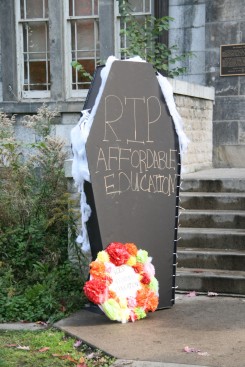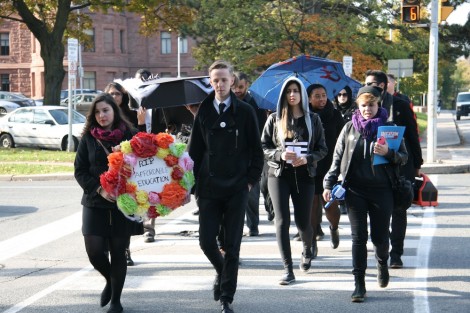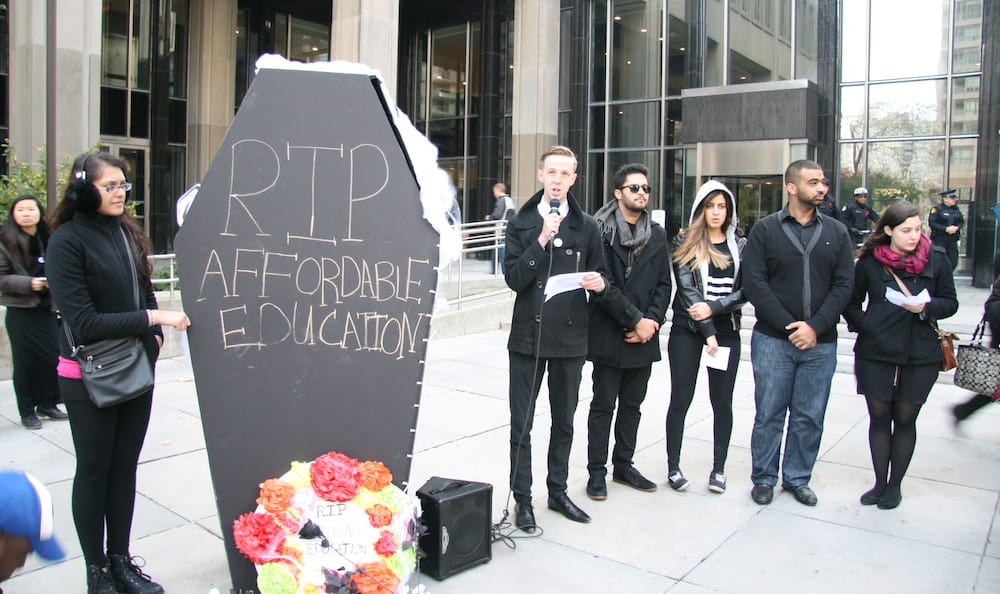A sombre procession of 20 people gathered around the University of Toronto Students’ Union (UTSU) office building at 11:30 am on Wednesday, October 30. Dressed in black, representatives from universities and colleges across the Greater Toronto Area (GTA) and the Canadian Federation of Students Ontario (CFS-O) staged a funeral for accessible education, as a part of the Hikes Stop Here campaign.

ELAINE ZHU/THE VARSITY
The campaign objects to rising tuition and the new four-year tuition framework advocated by the Liberal provincial government. According to the CFS-O, tuition fees have risen by as much as 71 per cent since 2006 and may rise by 108 per cent in the next four years. The campaigners point out that other provinces, such as Quebec or Newfoundland, do not follow such policies on higher education. In these provinces, student participation was able to guarantee either the tight regulation or the freezing of tuition fees entirely.
Anna Goldfinch, national executive representative of the CFS-O, explained: “As students in Ontario, we pay the highest tuition fees in all of the country. Today we are using Halloween as an opportunity to call attention to the fact that we believe that accessible and affordable post-secondary education in Ontario is unfortunately dying.” The CFS-O claims that by their fourth year of undergraduate studies, an average student’s personal debt amounts to $37,000.
After picking up a cardboard coffin and a paper floral reef, the mourners proceeded down Wellesley Street to the Ministry of Training, Colleges and Universities building. There, students gave eulogies in which they addressed their concerns over the rising cost of university, and how this issue affects them and the wider student community.
“By the time this government term will finish, the Liberal Party will be responsible for doubling tuition fees in Ontario,” said Alastair Woods, CFS-O Chairperson. Many others expressed their concern about not being able to pay for their education, and how this issue may prevent certain groups — including Aboriginal, immigrant and international students — from pursuing higher levels of education.
UTSU president Munib Sajjad, who was present at the event, explained how this issue personally affects him: “I’ve worked two or three jobs just to make ends meet. I actually had to drop a couple of courses while I was in my earlier years of education, just to help out at home.”

ELAINE SHU/THE VARSITY
The purpose of this event was to attract greater media and government attention to this issue. The various student bodies plan on working together in the future to organize similar actions. They also encourage other students to get involved with their unions to raise awareness of the problems that their local community is facing.


